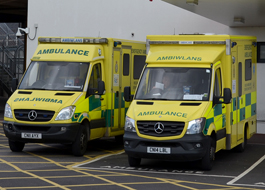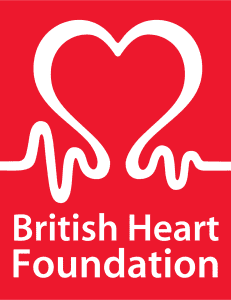NEWS UPDATE
Welsh Ambulance Service taking part in study to improve heart attack treatment
 Paramedics in Wales are to take part in a new study to establish the best way to diagnose people suspected of a having a heart attack.
Paramedics in Wales are to take part in a new study to establish the best way to diagnose people suspected of a having a heart attack.
Members of the Welsh Ambulance Service will work with researchers at Kingston University and St George’s, University of London, Swansea University and the University of Leeds to identify when ambulance crews should perform a simple ECG test. The project has been funded thanks to a £197,000 grant from the British Heart Foundation (BHF).
When someone has a suspected heart attack, ambulance crews can perform a pre-hospital ECG. Paramedics can then use the results to decide how to treat the patient, whether they should be taken to a specialist heart centre, and allow for appropriate care to be in place when the patient arrives.
Previous research has shown that people receiving the test were more likely to survive, but that around a third of patients with heart attack did not have the test performed, with women and older people being less likely to receive an ECG. However, since that work was conducted the preferred way to treat a heart attack has changed.
The scientists will study UK wide data on the treatment of heart attack patients to determine if use of the pre-hospital ECG is still associated with improved survival rates for heart attack patients.
 When their original work was conducted, clot-busting drugs were the principal treatment for a heart attack. Whereas today, primary angioplasty – where a blocked artery is widened using a stent – is the preferred treatment.
When their original work was conducted, clot-busting drugs were the principal treatment for a heart attack. Whereas today, primary angioplasty – where a blocked artery is widened using a stent – is the preferred treatment.
They will also carry out chart reviews and focus groups with paramedics from three ambulance services, including the Welsh Ambulance Trust, to understand when they use the pre-hospital ECG and the decision making process behind it.
By gaining an understanding of what influences the use of ECGs by ambulance crews, the researchers hope to be able to improve guidance on when they could be used more effectively.
Tom Quinn, Professor of Cardiovascular Nursing who is leading the project, said: “Paramedics play a crucial role in early assessment of patients with suspected heart attack. There is little evidence to date about how paramedics make the decision to perform an ECG, including when the patient does not have typical heart attack symptoms.
“By looking at nationwide data on the treatment of heart attacks and by speaking to ambulance crews working on the frontline we hope to develop a clearer picture of when these ECGs should be used.
“We can use this knowledge to empower ambulance crews, help them make the most effective decisions and ultimately save more lives.”
Welsh Ambulance Service Head of Research and Innovation, Nigel Rees, said: “I have attended patients who have reported symptoms such as dizziness, lethargy, being generally unwell or even a fall and, on rare occasions; this has turned out to be a heart attack. As Paramedics, we are trained to focus on what the patient tells us in order for us to make a good diagnosis, however this study could highlight new areas for us to pay close attention to.
“If the data shows new areas of concern, we are likely to carry out many more ECGs, diagnosing more heart attacks earlier, which could make a significant difference to the long-term outcome of the patient.”
 Adam Fletcher Head of BHF Cymru, said: “This project aims to answer important questions about how best to treat people suspected of having a heart attack. The results could help inform the way that ambulance crews work.
Adam Fletcher Head of BHF Cymru, said: “This project aims to answer important questions about how best to treat people suspected of having a heart attack. The results could help inform the way that ambulance crews work.
“Research like this is only possible thanks to generous donations from the public. Without their continued support we would not be able to fund the work that can help us improve the treatment and care of heart patients.”
A pre-hospital ECG is a test that paramedics can perform on someone with acute chest pain. The device measures electrical activity in the heart through a series of wires attached to the patient’s chest. The test, which takes about 10 minutes to perform, can diagnose a heart attack
In the UK there are nearly 200,000 hospital visits each year due to heart attacks: the equivalent of one every three minutes. In the 1960s more than 7 out of 10 heart attacks in the UK were fatal, however, advances in treatment mean that today at least 7 out of 10 people survive.
A heart attack happens when there is a sudden loss of blood flow to a part of your heart muscle. Heart attack symptoms vary from one person to another. The most common signs of a heart attack are pain or discomfort in the chest. But other symptoms can include pain in the arm, neck, and jaw, or feelings of sickness, light-headedness or shortness of breath.
Help keep news FREE for our readers
Supporting your local community newspaper/online news outlet is crucial now more than ever. If you believe in independent journalism, then consider making a valuable contribution by making a one-time or monthly donation. We operate in rural areas where providing unbiased news can be challenging. Read More About Supporting The West Wales Chronicle
























